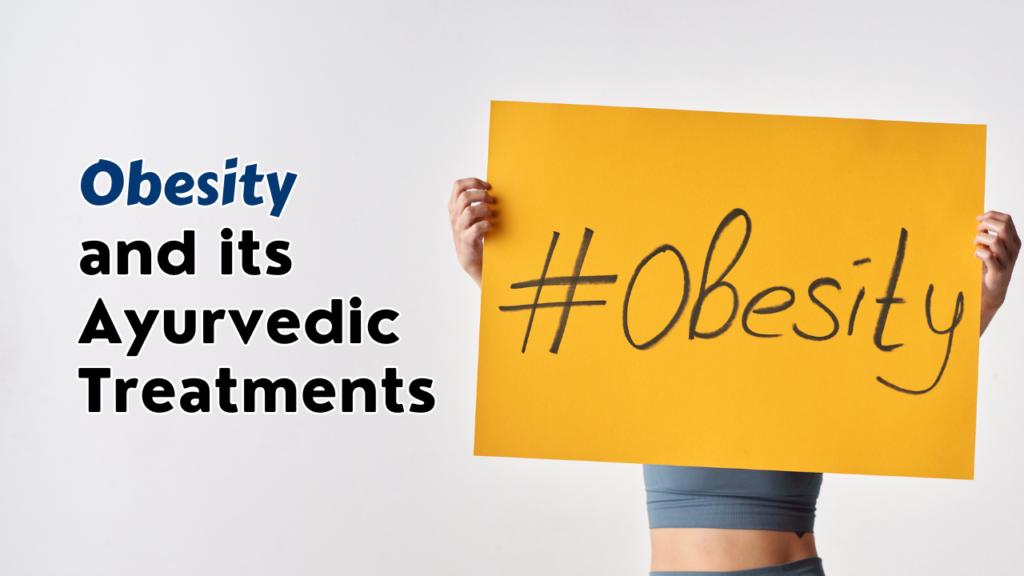Ayurveda, the traditional system of medicine in India, addresses obesity as a condition resulting from an imbalance in the doshas, particularly an excess of Kapha dosha. According to Ayurveda, obesity is not only a physical issue but also involves an imbalance in mental and emotional aspects. To control this can visit the Ayurveda Wellness Centre in Prayagraj.
Here are some Ayurvedic approaches to treating obesity:
- Dietary Guidelines:
- Avoid Heavy Foods: Reduce the intake of heavy, oily, and sweet foods.
- Increase Fibre: Include a variety of fruits, vegetables, and whole grains in your diet to increase fibre intake.
- Herbs and Spices: Incorporate herbs and spices like ginger, turmeric, black pepper, and fenugreek, which are believed to stimulate digestion and metabolism. And to know more about all this, you can contact the liver doctor available at Ayurvedic Hospital in Prayagraj.
- Lifestyle Changes:
- Regular Exercise: Engage in regular physical activity to stimulate metabolism and burn excess calories. Practices like yoga, walking, and swimming are recommended.
- Early to Bed: Adequate sleep is crucial. Try to maintain a regular sleep schedule and avoid staying up late.
- Stress Management: Chronic stress can contribute to weight gain. Techniques such as meditation and deep breathing exercises can help in managing stress levels. To get relief from joint pain, you can contact an Ayurvedic Doctor in Prayagraj.
- Ayurvedic Herbs:
- Triphala: This herbal combination of three fruits amla, is known for its detoxifying properties and is believed to support weight loss.
- Guggul: Guggul is thought to help regulate metabolism and reduce cholesterol levels.
- Medohar Guggulu: This specific formulation is often used in Ayurveda to address obesity by promoting fat metabolism and balancing the Kapha dosha.
- Ayurvedic Treatments:
- Panchakarma: This is a set of Ayurvedic detoxification procedures that may include therapies like Virechana (purgation) and Basti (medicated enema) to eliminate toxins and balance the doshas.
- Udvartana: It involves a massage with herbal powders, which is believed to help in fat mobilization and weight reduction.
Healing therapies for weight loss
There are various healing therapies that individuals may explore for weight loss, often as complementary approaches to a healthy diet and regular exercise. It’s important to note that individual responses to these therapies can vary, and consulting with healthcare professionals before starting any new treatment is recommended.
Here are some healing therapies that are sometimes considered for weight loss.
- Acupuncture:
- How it Works: Acupuncture involves the insertion of thin needles into specific points of the body. It is believed to help balance the flow of energy (qi) in the body and may influence hormones related to metabolism and appetite.
- Benefits: Some studies suggest that acupuncture may help with weight loss by reducing cravings and improving digestive function.
- Hypnotherapy:
- How it Works: Hypnotherapy involves guided relaxation and focused attention to achieve a heightened state of awareness. Therapists may use suggestions to help individuals change their behaviour, including eating habits.
- Benefits: Hypnotherapy may assist in addressing emotional eating patterns and promoting healthier habits.
- Mindful Eating:
- How it Works: Mindful eating involves paying attention to the present moment while eating and being aware of sensations, thoughts, and feelings associated with food consumption. It emphasises eating slowly and savouring each bite.
- Benefits: Practising mindful eating can lead to a better understanding of hunger and fullness cues, potentially preventing overeating.
- Massage Therapy:
- How it Works: Massage therapy involves manual manipulation of the body’s soft tissues. While it may not directly result in weight loss, it can contribute to overall well-being and stress reduction.
- Benefits: Stress reduction can be beneficial, as chronic stress is linked to weight gain in some individuals.
- Counselling and Behavioral Therapy:
- How it Works: Ayurvedic Doctor counselling or behavioural therapy can address emotional and psychological factors that contribute to overeating or unhealthy eating habits.
- Benefits: Identifying and addressing the underlying causes of overeating or emotional eating can support long-term weight management.
- Aromatherapy:
- How it Works: Aromatherapy involves the use of essential oils for therapeutic purposes. Certain scents are believed to influence appetite and cravings.
- Benefits: Some individuals find that specific aromas, such as peppermint or grapefruit, may help reduce cravings and support weight loss efforts.
- Biofeedback:
- How it Works: Biofeedback involves using electronic monitoring to provide individuals with information about physiological processes like heart rate, muscle tension, and skin temperature. It can be used to raise awareness of stress responses and promote relaxation techniques.
- Benefits: Biofeedback may help individuals manage stress, which can be a contributing factor to overeating.
Conclusion
It’s important to approach these therapies as part of a holistic approach to health that includes a balanced diet, regular exercise, and consultation with healthcare professionals. For all time available Neuro Ortho Doctor in Prayagraj. These therapies may not be suitable for everyone, and individual responses can vary. Always seek guidance from qualified healthcare practitioners before incorporating new therapies into your weight loss plan.
